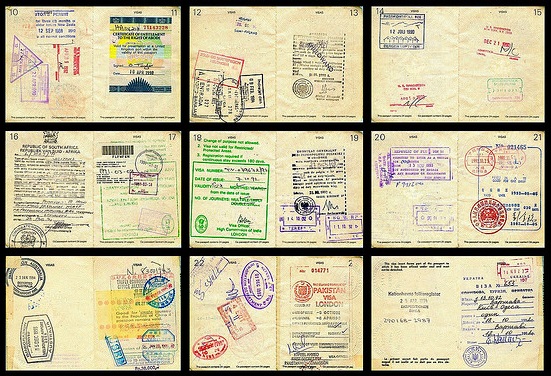The Beat, CT Scan and Checkpoint
Financial Action Task Force report
The latest report of the Financial Action Task Force on Australia’s compliance with anti-money laundering measures rated our legislation, systems and financial intelligence highly. The report, out every five years, found that Australia remains non-compliant in a couple of important areas, including ‘designated non-financial businesses and professions’, like accountants and lawyers and supervision of the non-profit sector.
BASCAP report
The International Chamber of Commerce’s Business Action to Stop Counterfeiting and Piracy Initiative have published a report, Roles and Responsibilities of Intermediaries: Fighting Counterfeiting and Piracy in the Supply Chain, that looks at steps to keep counterfeit goods out of the supply chain and off the internet. Director Jeff Hardy commented that “most intermediaries, when better informed about potential exploitation and the damage done by counterfeiting and piracy, demonstrate a willingness to secure their portion of the supply chain from abuse.”
Signing off on another Beat
After 40 years in the police service, Senior Constable Neale McShane is retiring from his beat of Birdsville. For the past decade, he has patrolled a 240,000 square kilometre patch over Queensland, South Australia and the Northern Territory—a jurisdiction the size of the United Kingdom. SC McShane attributes his success to a knowledge of the land and engagement with the locals, including Aboriginal elder and ranger Don Rowlands.
CT Scan
Perth’s Islamic State doctor: nothing new here
Perth doctor Tareq Kamleh’s appearance in Islamic State’s latest propaganda video made waves this week. But terrorism experts Clarke Jones and Greg Barton say Kamleh’s case is just ‘same old’; recruiters tapped into his feelings of ‘guilt and failure’ in swaying him from a partying lifestyle to extremism. On The Interpreter, Roger Shanahan pokes holes in the video’s portrayal of a modern medical facility.
Does terrorism actually work?
Terrorism is successful in stirring fear, but is it effective in achieving political goals? Max Abrahms argues that the ‘indiscriminate violence’ of terrorist groups often leads to government crackdowns, which in turn undermines the group’s political legitimacy. Listen to his podcast at Blogs of War (37 mins).
New Perspectives
The latest dishing of Perspectives on Terrorism is out. Notable gems include a study of Dutch jihadists that questions the consensus that jihadists are ‘surprisingly normal’. Instead, the research concludes that there’s a high rate of behavioural problems among radical Islamists. See also Scott Atran’s handy guide to what social science says about countering violent extremism tactics.
Checkpoint
Welcome to ASPI’s newest update Checkpoint. Checkpoint ‘will inspect and patrol’ Australian and international borders to provide you with the latest border security developments and commentary.
Drug trafficking in the Indian Ocean
During the 13th United Nations Congress on Crime Prevention and Criminal Justice recently held in Qatar, UNODC Executive Director Yury Fedotov stressed that the Indian Ocean could become a haven for criminal activity. Innovative concealment methods and vessels with multiple drop-off points have boosted the flow of heroin between the East Coast of Africa and South Asia.
Asylum seekers crossing the Mediterranean
According to The New York Times, the civil war in Libya has turned the country into, among other things, a transit hub that people-smugglers are using to launch boats destined for Europe. The increasing journeys attempted has also led to a greater number of casualties. In April over 1,000 migrants have drowned, while 11,000 people were rescued.
How powerful is your passport?
Using data from the International Air Transportation Agency, Arton Capital has created a Passport Index based on the number of countries it allows its holder to enter without a visa. The higher the Visa-Free score, the higher the Passport Rank. Australian passports—which enjoy visa-free access to 138 nations—secured a place in the top ten, while America and Britain topped the list with access to 147 countries.
